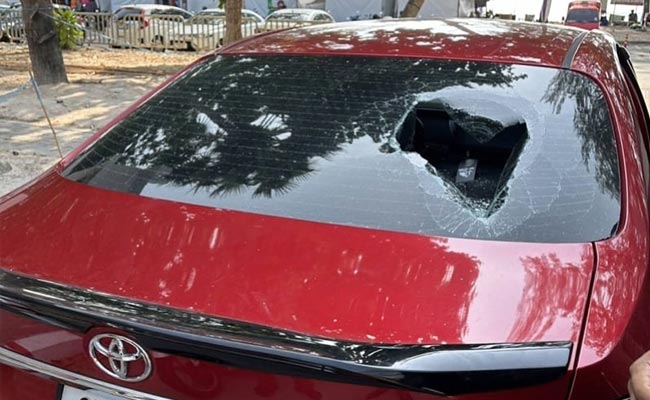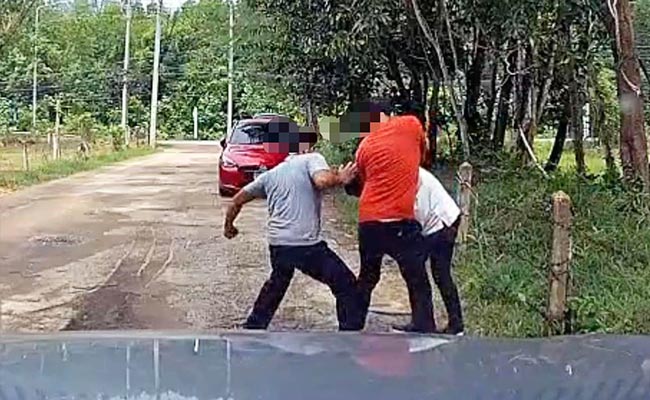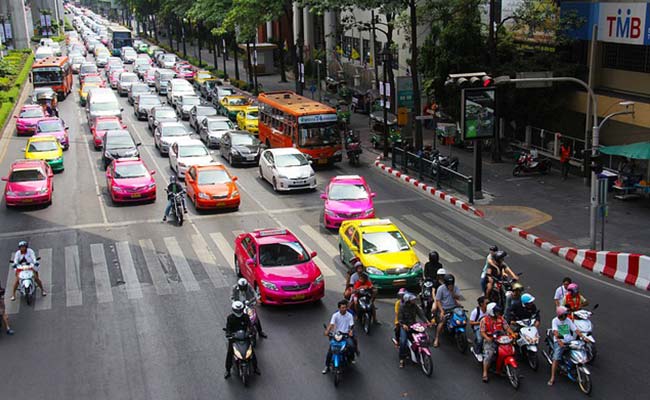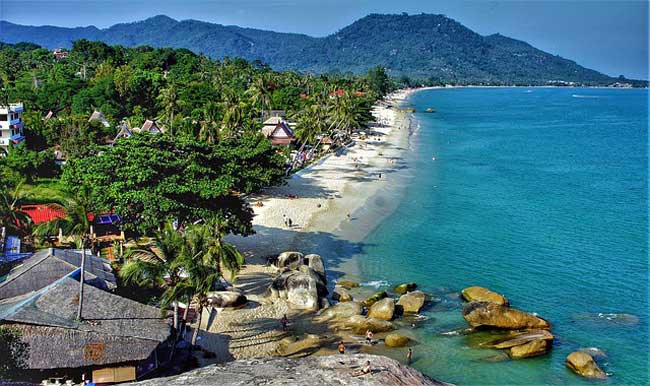The “Phuket taxi mafia” refers to the long-standing, controversial network of local taxi, motorbike taxi, and tuk-tuk transportation services in Phuket, often perceived as monopolizing the island's transport industry.
This informal “mafia” consists of a coalition of local taxi ranks and drivers who, within their transportation-specific groups, exert significant control in the local economy, setting high fixed prices and preventing competition.
The reputation of Phuket's taxi industry has at times caused frustration among tourists, as they often find themselves unsure of what price they should be paying and subsequently falling victim of overcharging. This has, on occasion, negatively affected the overall perception of Phuket as a tourist destination.
Here, I take a closer look at what contributes to this “mafia-like” reputation.
Please note:
For most tourists visiting Phuket, the local transportation issues are rarely noticeable and unlikely to impact their holiday. The so-called “taxi mafia” and occasional disputes between traditional taxi drivers and ride-hailing services are issues that typically occur behind the scenes and in specific contexts. Most travelers are unaffected by these dynamics and find Phuket’s transport options – including hotel shuttles, app-based rides, and traditional taxis– reliable and convenient. Phuket remains a place where visitors can expect an enjoyable stay.
The Phuket Taxi Mafia
1. High Prices, No Meter
Phuket's taxi fares are often notably higher than in other parts of Thailand. Unlike Bangkok's affordable metered taxis, many Phuket taxis refuse to use the meter and instead charge flat fees that are relatively expensive, even for short distances.
For example, in an incident that went viral in 2022, a Thai visitor from Bangkok got into an argument when negotiating with a local taxi at the airport.
For a journey that would have cost him just ฿168 (around $4.86) through a ride-hailing app, the local taxi quoted a fare of ฿600 (about $17.44) – three times the app-based rate. Originally, the driver had asked for ฿800 ($23.44) before slightly lowering the price.
That being said, these prices are also common on the island of Koh Samui, where there are no regulations for taxi pricing and most drivers do not use their meters.
2. Control Over Competition
The so-called Phuket taxi mafia is said to conspire to block competitors like ride-sharing apps (e.g., Grab, Bolt) and private drivers, limiting customer choice and maintaining their pricing power.
Reports have included incidents of harassment or intimidation toward drivers who attempt to operate independently or offer lower prices through apps (see the next section).
3. Monopolization of Popular Tourist Routes
Taxi syndicates, motorbike taxis in particular, have strict control over some routes to and from key locations such as the airport, Rassada Pier (which connects Phuket to Phi Phi Island), and popular beaches.
This control makes it challenging for tourists to negotiate rates or find alternatives. That being said, if you join the queue for the official taxi rank at Phuket airport (domestic or international arrivals), metered taxis are available – though only from two companies licensed by the airport.
There are, however still stories of drivers charging fixed rates. Note that there will be a ฿100 airport surcharge on top of your standard fare.
Incidents of Intimidation
Authorities in Phuket have attempted to regulate the taxi industry to improve competition and provide a more consistent service to tourists, but these efforts have faced resistance. The entrenched system often leads to inconsistent enforcement and limited success in curbing the influence of the “mafia.”
There have been numerous reports of problem taxi drivers, including not just overcharging and intimidation but also infighting between rival taxi ranks. This is not exclusive in Phuket and has happened in Bangkok and other cities of Thailand. However, Phuket often finds itself in the spotlight due to incidents like those described below.
Incident example 1:
In September of 2022, four travelers at Phuket’s Rassada Pier were forced off a pre-booked van by members of a local taxi group. The travelers had just returned from a trip to Phi Phi Island and had arranged a pick-up through the Bolt app. However, as they attempted to board their ride, a group of men from the Rassada VIP Group – a local taxi association with an established stand at the pier – intervened.
The Rassada VIP Group claimed exclusive rights to provide transport services at the pier and insisted that any other service was unauthorized, viewing their intervention as upholding local regulations. Ironically, the confrontation took place on the very day Bolt had been officially legalized to operate in the area.
This misunderstanding led to the travelers being left stranded temporarily. In response to the incident, officials at the pier posted a sign two days later, clarifying that no single taxi group held exclusive operating rights at Rassada Pier (source).
Incident example 2:
In Feb of 2024, a Grab driver was threatened by a group of local taxi and tuk-tuk drivers outside the Maya Hotel in Cherng Talay. The incident occurred in the early hours of the morning while the driver was picking up two foreign tourists.
After arriving at the designated spot, a man confronted him, asking whether he was there to pick up customers. upon confirming this, he smashed his car, and called others to surround the vehicle, blocking its path with a tuk-tuk. Terrified, the driver called the police, but the perpetrators had fled by the time officers arrived.
Both the driver and the tourists were shaken, unaware of what had transpired.

In April, 2024, two tuk-tuk drivers smashed the window of a taxi operating via a ride-hailing app.
Incident example 3:
In July of 2024, a violent incident involving two Phuket taxi drivers and a ride-hailing app driver was captured on camera. The confrontation occurred around 10:30 a.m as the app driver waited to pick up a customer.
After a brief exchange, without provocation, one of the perpetrators slapped the app driver on the back of the head, while the other began to throw punches, eventually kicking the app driver in the face. The app driver collapsed to the ground as the two men walked away from the scene.
The assault left the ride-hailing driver hospitalized, suffering from a fractured skull and multiple facial bruises. This incident, widely shared online, has added to public concerns over the intense rivalry, sparking further debate about safety and competition in the island’s transportation sector (source).

Incident example 4:
“Mafia” Or Disgruntled Drivers?
It is important to draw some distinction between the traditional “taxi mafia” and the many disgruntled local taxi and tuk-tuk drivers who have become frustrated with app-based ride services.
Since the legalisation of ride-hailing in Thailand in 2019, many such services have legally taken up operation in Phuket, namely: Grab, Bonku, Asia Cab, Bolt, Hello Phuket, and inDriver.
The “taxi mafia” refers to established groups or associations that have long controlled local taxi services, monopolizing certain areas, routes, and even fixed pricing structures.
These groups often use intimidation tactics, threats, or other forms of coercion to maintain their grip on the market. Their grievances are rooted in maintaining control over the local transportation industry and enforcing rigid pricing.
On the other hand, there are many disgruntled drivers who are simply upset with app-based services and are not necessarily part of an organized mafia. These drivers are frustrated by the disruptive impact that these apps have had on their livelihoods. This sentiment was expressed in a mass protest at the Phuket Provincial Hall in late 2023.
App-based taxis, by offering lower prices and easier access for passengers, have intensified competition, often undercutting the prices that local drivers rely on. These drivers may feel that the technology is not only harming their income but also eroding the traditional taxi system they’ve been a part of for years.
While Uber's exit from Thailand due to protests demonstrated the significant opposition to app-based services from these groups, the growth of Grab and Bolt, in particular, has kept tensions high.
The frustration among local drivers is not necessarily about mafia control, but rather about a shift in the market that they feel undermines their ability to earn a living.
What a Taxi in Phuket Should Cost
Here’s a breakdown of the cost structure for metered taxis in Phuket, which follows a regulated rate system. Prices include base fare, per-kilometer charges, and extra fees where applicable.
- Base Fare: THB 50 (approximately USD 1.40)
- This base fare applies when the taxi ride starts, regardless of the distance.
- Per-Kilometer Charge:
- First 2 km: Included in the base fare
- 3–15 km: THB 12 per km (about USD 0.34 per km)
- 16–40 km: THB 10 per km (about USD 0.28 per km)
- Beyond 40 km: THB 9 per km (around USD 0.26 per km)
- Waiting Time: THB 3 per minute (approximately USD 0.08 per minute)
- This fee applies when the taxi is stationary or moving slower than 6 km/h, which is common in traffic.
The pricing structure has barely changed since 2014. Given the rise in the cos of living since then, it is no wonder the taxi drivers refuse to use their meters. However, some will note that the meter pricing is still higher than in Bangkok.
In Summary
Phuket’s taxi industry has long struggled with a reputation for overpricing and territorial control, leading to distrust among tourists. The problem is intensified by reports of aggressive encounters, like those detailed above.
Social media has amplified these issues by providing a platform for tourists to document and share their experiences. When videos of taxi confrontations or tales of price-gouging surface, they quickly go viral, reaching a global audience and discouraging potential visitors who fear they may face similar treatment.
For many tourists, transportation is their first and last interaction in a destination, meaning a negative experience with local taxis can color their entire view of the trip. Over time, this distrust does more than just affect individual visitors; it can influence the overall reputation of Phuket as a tourist destination.
——
Go a Phuket taxi story to tell? Leave it in the comments section below.
Best hotel rates are found at Agoda and Hotels.com. Travel insurance protects you against illness, injury, theft, and cancellations. I never travel without it. I’ve been using SafetyWing for years. You should too. Check out this guide for the best options.Tips to Start Planning Your Trip Now:
Book Your Accommodation
Don’t Forget Travel Insurance
Considering a Backpack?
Last Updated on



JamesE says
If you look at a trip from the airport to Kata Beach in Phuket, as distance of 50km, the official rate would cost about ฿550. That includes gasoline, car expense and maintenance, airport/license fees, and the driver's time for about an hour. Then, the driver has to find a way to get a fare or two to get them back to the airport. So, if they were to average six of these trips over a 12 hour day AND had a "profit" of 50% of the gross fare, they would net ฿1,650 per day.
My guess is that they neither have that kind of profit margin nor make that many trips a day.
Nobody reading this would be able to live on Phuket for ฿1,650 a day. Why would you expect the taxi driver to want to?
So, to get around the rules, these associations form and use time-tested methods to protect their turf. Which throws the Thai government into a tizzy because their only concern is keeping labor costs low to protect the profits of vested interests - typically larger hotel chains - so that most of the revenue flows to the businesses, and whoever else happens to have a hand in the till.
The inexpensive travel opportunity that is one of Thailand's big draws has a cost. The conversation that should be being had is drowned out by tourists whining about how expensive taxis are on Phuket.
Nov 30, 2024 at 11:13 pm
TheThailandLife says
Dec 01, 2024 at 12:35 am
Rob says
Nov 30, 2024 at 4:17 pm
TheThailandLife says
Nov 30, 2024 at 4:47 pm
Philip Maher says
Nov 29, 2024 at 5:30 pm
TheThailandLife says
Nov 29, 2024 at 6:27 pm